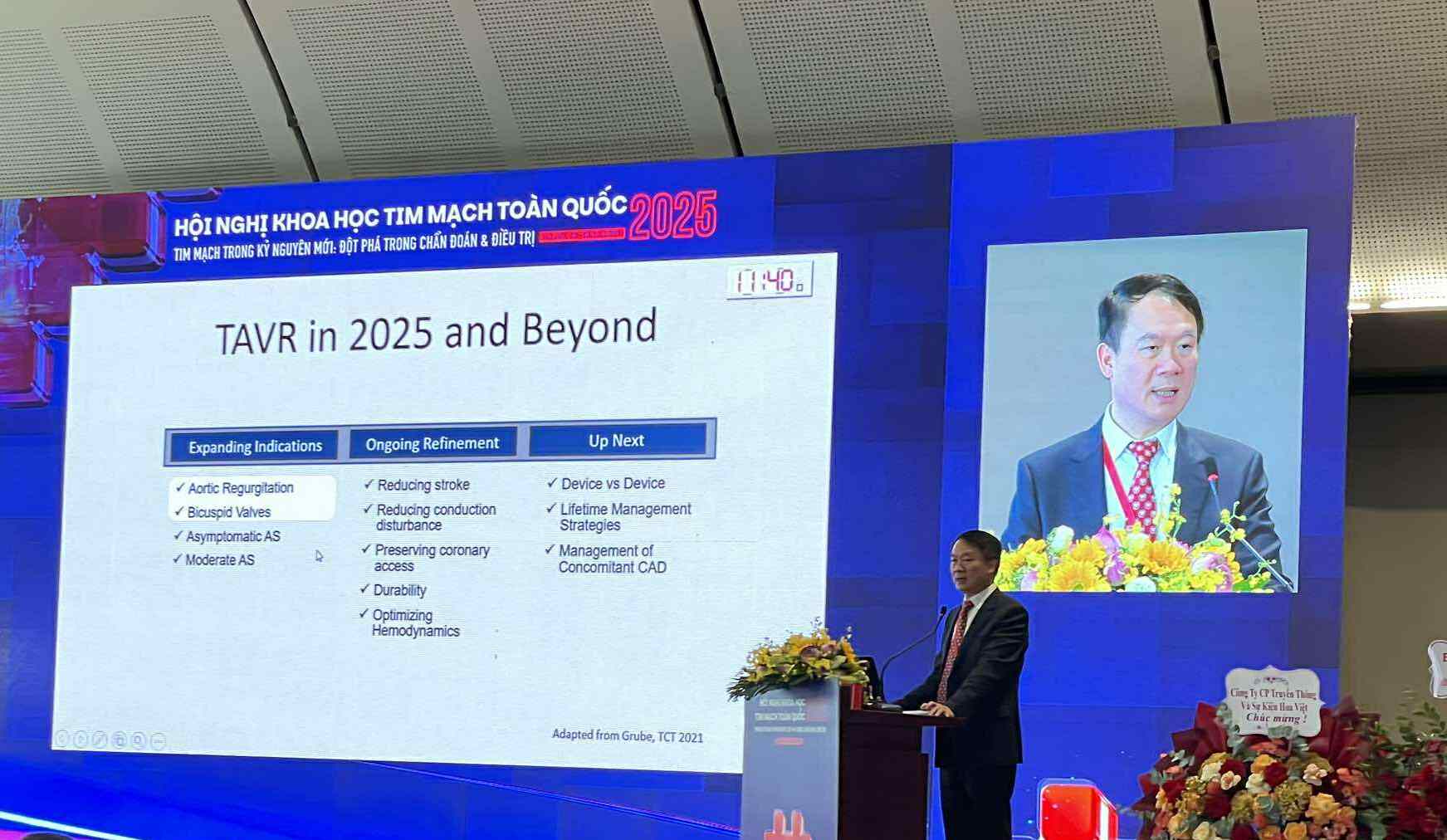Cardiovascular disease, the most dangerous non-communicable disease of the century
At the 2025 National Cardiovascular Science Conference organized by the Vietnam Cardiology Association on October 18 with the theme " Tim cardiology in the new era: Breakthrough in diagnosis and treatment", Prof. Dr. Pham Manh Hung, Vice President of the Vietnam Cardiology Association, said that the disease model and health care strategy are having many clear changes. If cardiovascular disease used to appear mainly in developed countries, now the trend has shifted from "old" to "old", from acute to chronic, and is deeply affected by social, economic and environmental factors. However, most health systems in the world are still more concerned with treatment than prevention, causing the burden of heart disease to continue to increase.
According to the World Health Organization (WHO), the global burden of cardiovascular disease in 2025 has doubled in the past 30 years, exceeding 500 million people and causing nearly 19 million deaths each year - accounting for more than 30% of total global deaths.
Notably, more than 75% of deaths occurred in low- and middle-income countries, with an estimated global economic loss of more than $1 trillion per year.

In Vietnam, diseases caused by atherosclerosis account for 65% of all cases, of which coronary artery disease and stroke continue to be the two leading causes of death, with about 200,000 cases per year, equivalent to 1/3 of all deaths nationwide.
The above figures show the huge challenge in the prevention, diagnosis and treatment of cardiovascular disease - requiring close coordination between experts, research institutes and health agencies.
gaps in cardiovascular prevention and care
Prof. Dr. Pham Manh Hung also pointed out that in most countries, resources are still focused on late-stage treatment, while primary and primary prevention has not received due attention. Policies on nutrition, tobacco control, salt reduction and physical activity enhancement are not synchronous and have not been effectively implemented in many places. In addition, medical infrastructure and human resources have not met the rapidly increasing demand for cardiovascular care; health education is still limited, while trust in preventive medicine is still low in many communities.
To reduce the burden of global cardiovascular disease, experts recommend an integrated prevention strategy including: Promoting public health education from an early age; Reducing risk factors such as eating saline, using bad fats, environmental pollution and ultra-processed foods; Applying advanced technology such as AI and big data analysis to predict risks; Strengthening international cooperation in the field of cardiovascular disease; Building a fair, sustainable health care system and aiming for prevention rather than treatment.
Experts at the conference said that to reduce the burden of cardiovascular disease globally, it is necessary to have a comprehensive prevention strategy, from health education, reducing risk factors to applying AI, genetic technology and personalized medicine in diagnosis and treatment.
The 2025 National Cardiovascular Conference focuses on topics such as intervention cardiovascular, electrophysis, heart failure, high blood pressure, heart surgery, along with new trends in AI, genetic technology, less invasive interventions and digital transformation in the cardiovascular system. The event affirmed the commitment of the Vietnam Cardiology Association in the mission "For a healthy heart - a healthy community", contributing to improving the quality of treatment, preventing cardiovascular diseases and integrating modern and sustainable medicine.











